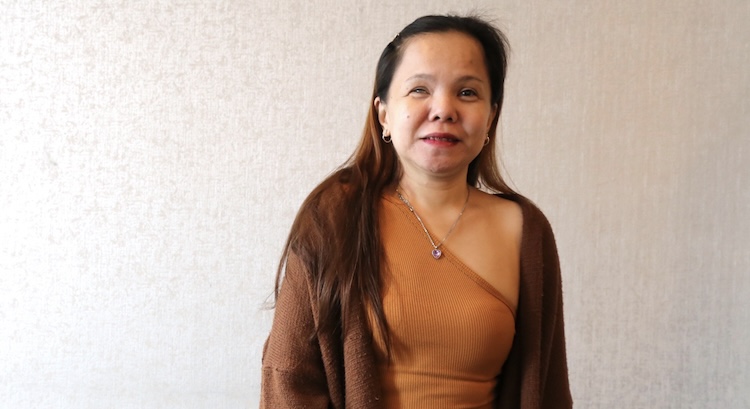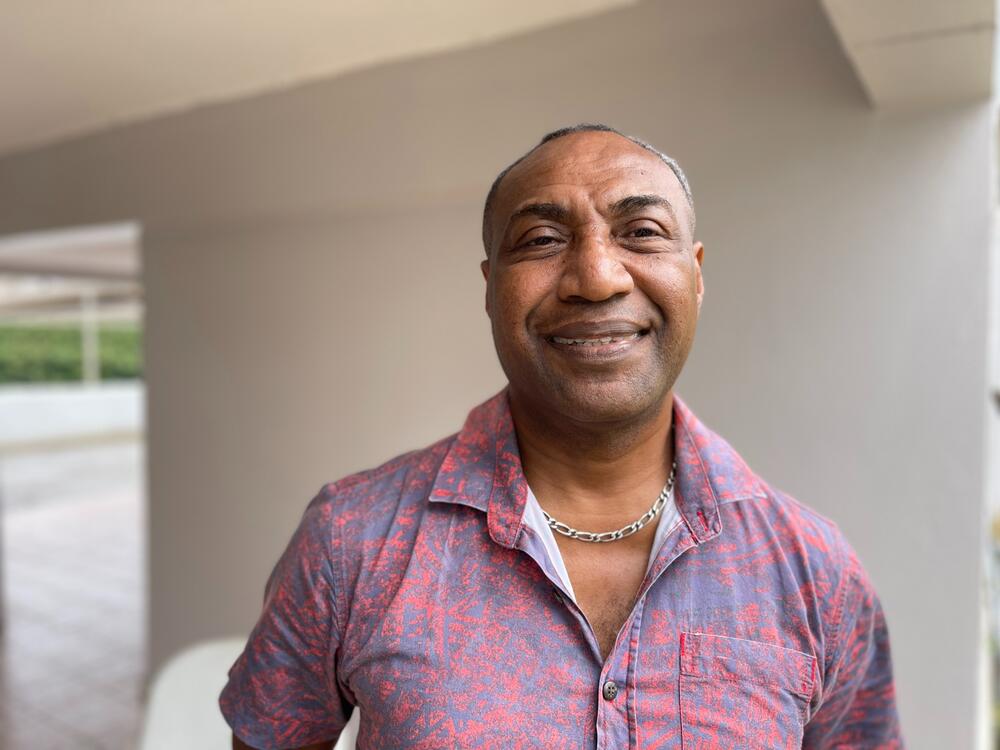News
Fighting for equal rights against the tide of climate change
- 05 June 2024
News
ASIA PACIFIC REGION – Janine Cruzet runs a women’s disability rights group in the Philippines, one of many low-lying island nations that are home to millions of people at the forefront of the global climate crisis.
Women and girls are paying a heavy toll in the face of climate change – one that is heavier still for people living with disabilities. Speaking of her friend Emily who has a visual impairment, Ms. Cruzet explained, “When a typhoon approaches town, the evacuation centre is a whirlwind of activity – but for her it is a maze of inaccessible bathrooms and scarce hygiene supplies.”
Despite being responsible for far lower overall greenhouse gas emissions, countries like the Philippines shoulder a disproportionate burden for the rest of the world, with countless deaths and billions in economic losses every year due to climate disasters.
Across the world, cyclones, hurricanes, floods, extreme temperatures and drought are becoming more frequent, more prolonged and more intense. These challenges only exacerbate discrimination and inequalities and expose millions to health and safety risks through mass and long-term displacement, destroyed livelihoods, and collapsed health and education systems.
Sexual and reproductive health and protection rights are critical – but often overlooked – casualties in this unfolding disaster. And for a girl or woman living with a disability, daily realities such as menstruating can become a nightmare. “The lack of privacy and proper facilities forces her to make do with whatever she can find,” Ms. Cruzet told UNFPA, the United Nations sexual and reproductive health agency.
“Disaster preparedness must be inclusive and considerate of diverse needs. It’s about safeguarding the rights and dignity of all individuals, regardless of ability, in times of crisis.”
Inclusion by design
Ensuring accessible facilities, providing clear information in different formats and offering support tailored to persons living with disabilities are crucial to safeguard the well-being of everyone during a crisis.

The UNFPA-supported Veivanua campaign in Vanuatu, for example, supports menstrual health interventions in humanitarian settings for people with intellectual disabilities and their caregivers. “In these provinces there was very little information available at the community level,” said Ellis Lee, one of the leaders of the project.
“Veivanua supports girls and women prior to and after a cyclone: The girls get a pack with a picture-based book that their carers can use, along with a doll to teach the girls how to care for their menstrual health and address the shortage of products available.”
The project is also helping to raise awareness about the importance of menstrual health in a crisis. “Veivanua helps ensure that people with intellectual disabilities, their carers and their families relocate to safety with the menstrual products to use while they are at the evacuation centre,” said Ms. Lee. “The discussions are changing the mindset of community members to allocate resources and to talk about where these girls can go to use rooms in the evacuation centres for more privacy.”
Health and rights protection for everyone
Many other marginalized groups are overlooked in crisis response, such as LGBTQI+ individuals. Saimone Tuni chairs the Rainbow Pride Foundation in Fiji, and explained that the lack of inclusion in climate discussions reinforces a feeling of alienation.
“In Fiji, there is a lot of pushback on this issue,” he told UNFPA. “When it comes to evacuation, when it comes to assistance, anything that is related to climate change, our people are left out because of their identity, their sexual orientation, their perceived gender expression.”
“It confirms the core belief that they are not worthy, that they are unloved by society. This lack of recognition affirms these beliefs that they have accumulated over many years about themselves, that they do not belong.”

Mr. Tuni explained that the solutions will take time, but “the conversation on inclusion should really mean inclusion; the government has a lot of work to do in this area.”
UNFPA worked with the Rainbow Pride Foundation to create a customized dignity kit to address the unique needs of LGBTQI+ individuals during a disaster, whether in evacuation shelters or in their homes. The new ‘pride kit’ is a first in the Pacific, and includes essential reproductive health commodities, hygiene products and information on sexual and reproductive health and gender-based violence support.
Adapting to adversity
Placing marginalized people at the core of sustainable development efforts is key to protecting the health, rights and futures of millions. “We need scaled-up and targeted investments that safeguard [vulnerable women’s and girls’] rights and strengthen their ability to adapt,” said UNFPA Executive Director Dr. Natalia Kanem.
UNFPA is working with partners to make health systems more climate-resilient and ensure services are more mobile, stocks are pre-positioned, and staff are in place. But more is needed.
“It's a reminder that disaster preparedness efforts must be considerate of diverse needs,” said Ms. Cruzet. “There is an urgent need for more inclusive disaster planning and menstrual hygiene management strategies.”
This is part of a series of stories illustrating progress made since the 1994 International Conference on Population and Development, which committed to ensure gender equality and the right to sexual and reproductive health for all. Find out more.